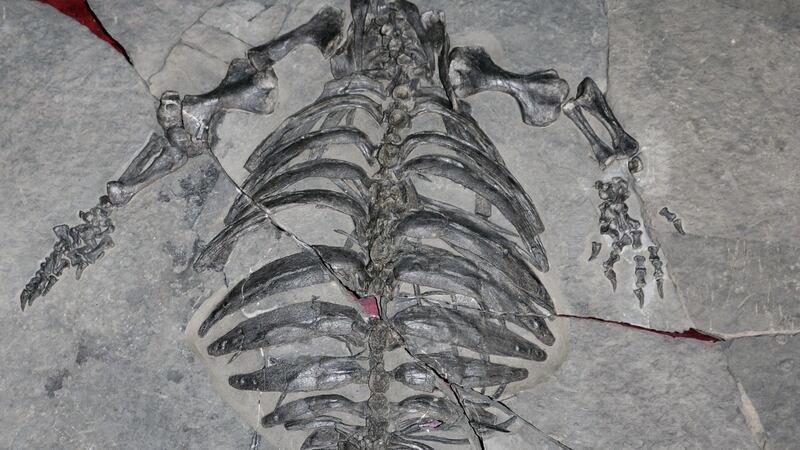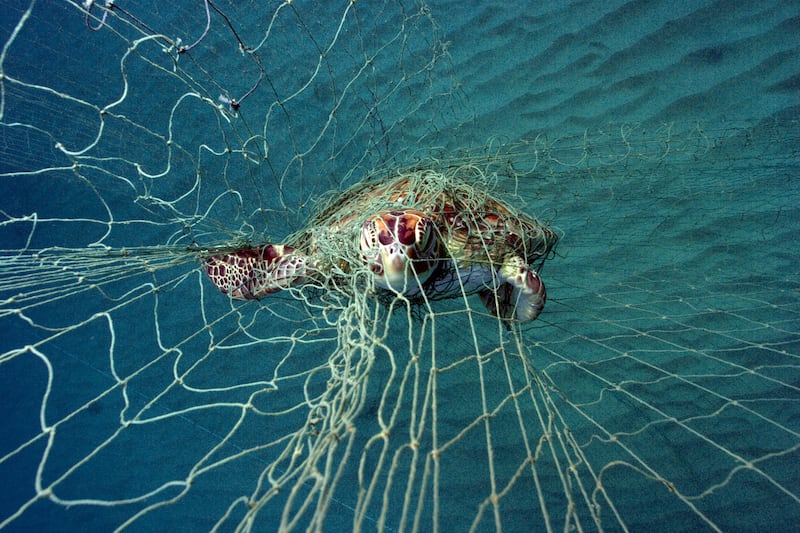A “turtle” that lived more than 200 million years ago had a Frisbee-shaped body but no shell, scientists have discovered.
The newly named species, Eorhynchochelys sinensis, had evolved a toothless beak but not the other turtle hallmark, a protective shell.
Palaeontologist Dr Olivier Rieppel, from the Field Museum in Chicago, US, said: “This creature was over six feet long, it had a strange disc-like body and a long tail, and the anterior part of its jaws developed into this strange beak.
“It probably lived in shallow water and dug in the mud for food.”
A complete fossilised skeleton of E. sinensis was found embedded in 228 million-year-old rocks in Guizhou Province, China.
The creature is described in the latest issue of the journal Nature.
Dr Rieppel added: “The origin of turtles has been an unsolved problem in palaeontology for many decades.
“Now with Eorhynchochelys, how turtles evolved has become a lot clearer.”
British co-author Dr Nick Fraser, from National Museums Scotland, said: “This impressively large fossil is a very exciting discovery giving us another piece in the puzzle of turtle evolution.
“It shows that early turtle evolution was not a straightforward, step-by-step accumulation of unique traits but was a much more complex series of events that we are only just beginning to unravel.”








